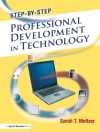Women across the world experience gender-based violence and harassment in the workplace. In the context of globalization and neoliberalism, work plays an important role in constructing and maintaining the economic, social and cultural systems of oppression that women face. Women in insecure, precarious employment and women not protected by trade unions are the most at risk of violence and as the #Me Too movement has shown, it stretches across societies rich and poor.
In June 2019, the International Labour Organization adopted a ground-breaking global Treaty on eliminating violence and harassment in the world of work. This historic vote was the result of more than a decade of campaigning and lobbying by women trade union leaders and their allies across the world. Chidi King, Robin Runge and Jane Pillinger played a key role in the campaign and the negotiation of the Convention. Combining both their activist and academic backgrounds, this book documents their unique insights into and experience of the campaign and its landmark achievement in international labour law, global policy and the cross-movement building of workers’ and women’s rights, which has reignited the role of trade unions, and particularly women in trade unions, in global advocacy.
Innehållsförteckning
1. Introduction
2. The campaign for a binding global labour standard, 2009–19
3. Gender equality at the heart of decent work
4. The campaign leading to the meeting of experts in 2016 and a framework for a convention and recommendation
5. The build up to and negotiations in the first ILO standard setting committee, 2018
6. The campaign between 2018 and 2019, and the negotiations in the second ILO standard setting committee 2019
7. The campaign for the ratification and implementation of C190
8. The collective voices of women workers and what C190 and R206 represent
9. Conclusions
Appendix A: Responses to the questionnaire in the ILO’s “yellow report”
Appendix B: List of people interviewed
Om författaren
Jane Pillinger is an independent researcher and a former visiting professor in gender studies at the London School of Economics and a senior research fellow in the Department of Social Policy and Criminology at the Open University.












